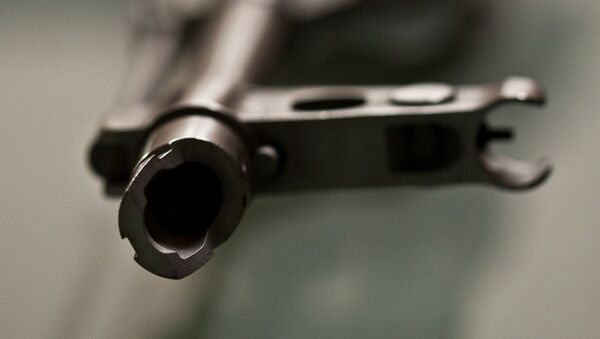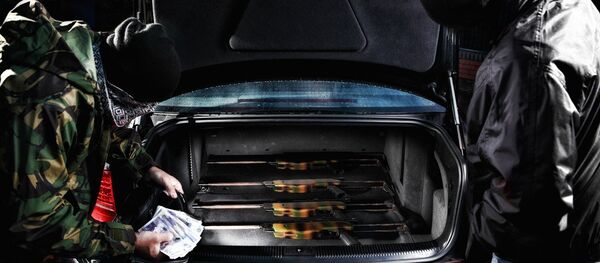Meanwhile, German newspaper Bild published a report that the man arrested was suspected of selling four weapons to the Islamic State militants who shot dead 130 people in Paris on Friday 13 November.
Emails reveal that the man arrested in Germany had been in touch with an "Arab in Paris", according to the paper that also suggested that French prosecutors believe the weapons were used in the atrocities in Paris.
During a recent route search of a vehicle in Munich, police discovered eight Kalashnikovs, two pistols, a revolver, tow hand grenades and 200 grams of explosives. The arsenal was being driven to Paris by a 51-year-old from Montenegro.
This week Italian authorities seized almost 800 shotguns en route from Turkey to Belgium — a country widely regarded as the hub of the illegal weapon trade because of its geographical position and relaxed gun laws.
The firearms were discovered in boxes in a Dutch-registered truck in the northern Italian city of Trieste. According to a police statement, the 781 weapons were pump-action Winchester SXP shotguns, caliber 12-51 and 12-47. The Turkish driver did not have licenses for the weapons.
The European Commission plans to update its EU Firearms Directive to prevent gun trafficking between Europe's borders — ban purchases of semi-automatic firearms — and crack down on unlicensed purchases. UK firearms expert David Dyson told Sputnik:
"You can make laws as strict as you can but criminals buying guns would never apply for a firearms certificate in the first place."
Dyson believes borders will never be completely safe as long as criminals can get hold of firearms.
Increasingly, criminals are turning to the dark web to purchase their weaponry. Fifty-seven people in France were arrested last year for buying firearms — including Kalashnikovs online.




